In the complex landscape of international trade, freight forwarding emerges as a pivotal service that ensures the seamless movement of goods across borders. Acting as intermediaries, freight forwarders coordinate logistics, manage transportation, and navigate customs regulations to facilitate efficient shipping processes. This introductory guide explores the essential roles and responsibilities of freight forwarders, the various shipping options available for importing goods from China to countries like Brazil, and key factors to consider when selecting a reliable partner for your logistics needs. Whether you’re a seasoned importer or new to international shipping, understanding these fundamentals is crucial for optimizing your supply chain and ensuring your goods arrive safely and on time.
Related Article : Shipping From China to Brazil
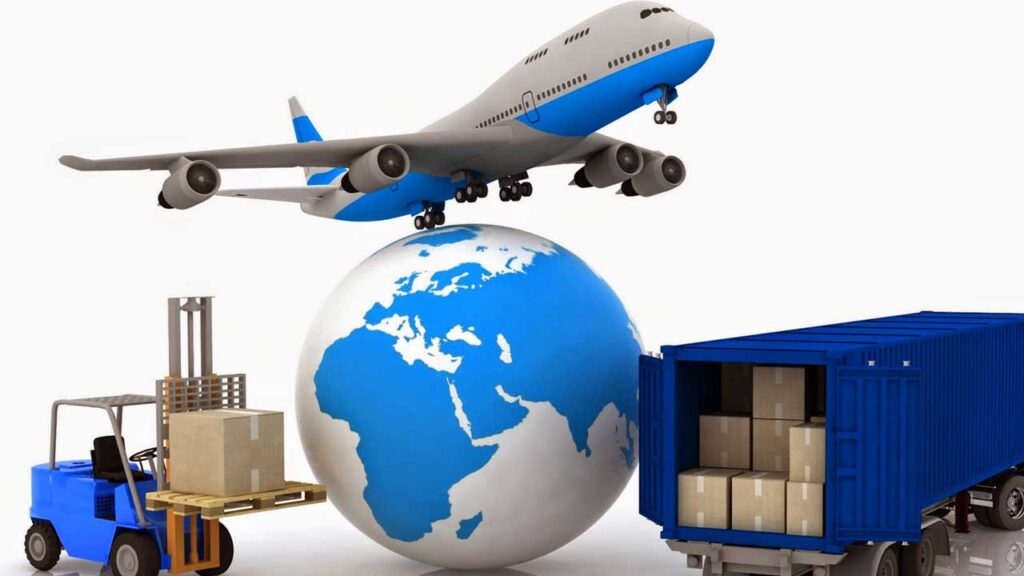
Understanding Freight Forwarding Services
Freight forwarding is a crucial component of international trade that involves the coordination and shipment of goods from one location to another. It serves as a vital link between manufacturers, suppliers, and customers, ensuring that products are transported efficiently and safely across borders.
Definition of a Freight Forwarder
A freight forwarder acts as an intermediary between the shipper and various transportation services. They specialize in arranging the movement of goods for individuals and businesses, managing the logistics involved in international shipping. This includes negotiating freight charges, booking cargo space, and ensuring compliance with international shipping regulations. Freight forwarders possess expertise in navigating complex logistical challenges, which helps streamline the shipping process.
Key Responsibilities and Services Offered
Freight forwarders provide a wide range of services to facilitate smooth and efficient shipping processes, including:
- Customs Clearance: Handling all customs documentation and procedures to ensure compliance with local and international regulations.
- Transportation Arrangements: Organizing various modes of transport, including air freight, sea freight, and road transport to ensure timely delivery.
- Cargo Insurance: Offering Insurance Services to protect goods against potential damage or loss during transit.
- Warehousing Services: Providing storage solutions for goods, including facilities for inventory management and distribution.
- Consolidation Services: Combining smaller shipments from multiple customers into larger shipments to reduce costs.
- Tracking and Updates: Offering real-time tracking and updates on the status of shipments, ensuring transparency and peace of mind for customers.
By leveraging their expertise, freight forwarders ensure that goods are delivered on time, leading to improved business efficiency and customer satisfaction.
Shipping Options from China to Brazil
When importing goods from China to Brazil, businesses have several shipping options available. The selection of the appropriate method depends on various factors, including cost, urgency, and the nature of the goods being transported.
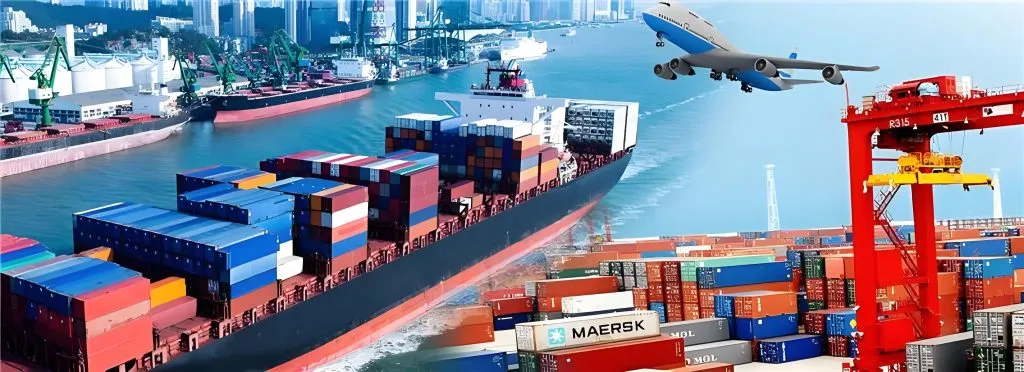
Air Freight
Transit Times and Costs
Air freight is the fastest shipping method for urgent cargo, typically taking between 5 to 10 days for delivery. However, it generally incurs higher costs compared to sea freight. The overall expense can vary based on factors such as the weight and dimensions of the cargo, as well as the specific routes taken.
| Service Type | Transit Time | Approximate Cost (per kg) |
|---|---|---|
| Standard Air Freight | 5 – 10 days | $5 – $10 |
| Express Air Freight | 2 – 5 days | $10 – $20 |
Major Airports and Airlines
China is home to numerous major airports that facilitate air freight, including Beijing Capital International Airport (PEK), Shanghai Pudong International Airport (PVG), and Guangzhou Baiyun International Airport (CAN). Major airlines operating routes between China and Brazil include:
- China Southern Airlines
- Air China
- LATAM Airlines
These airlines provide dedicated cargo services, ensuring efficient transportation of goods.
Sea Freight
FCL (Full Container Load) vs. LCL (Less than Container Load)
Sea freight is a cost-effective option for larger shipments. It can be categorized into two primary types:
- FCL (Full Container Load): A full container dedicated to a single shipper’s cargo. This is suitable for larger shipments, typically offering lower shipping rates per unit.
- LCL (Less than Container Load): Multiple shippers share container space, which is ideal for smaller shipments. Although it can be more expensive per unit, it allows for flexible shipping options.
| Shipping Method | Ideal for | Estimated Transit Time | Cost Consideration |
|---|---|---|---|
| FCL | Large shipments | 25 – 40 days | Lower cost per unit |
| LCL | Small to medium shipments | 30 – 50 days | Higher cost per unit |
Main Ports and Shipping Routes
Brazil’s major ports, such as the Port of Santos and the Port of Rio de Janeiro, offer vital access for goods arriving from China. The primary shipping routes typically involve the Pacific Ocean, with vessels departing from Chinese ports such as Shanghai, Ningbo, and Shenzhen.
Express Shipping for Urgent Cargo
For businesses requiring immediate delivery, express shipping services can be utilized. These services prioritize speed and guarantee shorter transit times, often complemented by specialized handling of urgent shipments. While express shipping represents a higher cost compared to standard air or sea freight, it ensures that critical cargo arrives promptly.
By understanding the various shipping options available from China to Brazil, businesses can make informed decisions that align with their operational needs and budget constraints. For tailored logistics solutions, consider Dantful International Logistics as your strategic partner, providing A Highly Professional, Cost-effective And High-quality, One-Stop International Logistics Service Provider For Global Traders. Explore our range of services, including Door to Door Shipping and Customs Clearance, to facilitate your import needs seamlessly.
READ MORE:
- Shipping From China to the United States
- Shipping From China TO Canada
- Shipping From China TO Mexico
- Shipping From China to Panama
- Shipping From China to Costa Rica
- Shipping From China to Brazil
- Shipping From China TO Colombia
- Shipping From China to Jamaica
- Shipping From China to Venezuela
Factors to Consider When Choosing a Freight Forwarder
Selecting the right freight forwarder for shipping goods from China to Brazil is essential for ensuring smooth logistics operations. A well-chosen freight forwarder can significantly impact the efficiency and cost-effectiveness of your supply chain. Below are key factors to consider when making this decision.
Experience and Expertise in China-Brazil Trade
Freight forwarders with extensive experience in the China-Brazil trade possess valuable insights into the specific challenges and requirements of shipping between these two countries. Understanding local regulations, customs processes, and market trends enables forwarders to navigate complexities and optimize logistics strategies effectively. Look for forwarders with a proven track record of successful shipments between China and Brazil.
Range of Services Offered
A comprehensive range of services can greatly enhance the efficiency of your shipping operations. Essential services to look for include:
- Air Freight and Sea Freight options
- Customs Clearance to handle documentation and compliance
- Warehouse Services for storage and inventory management
- Insurance Services to protect your cargo during transit
Choosing a forwarder that offers a complete suite of services allows for streamlined communication and coordination throughout the shipping process.
Network and Partnerships in Both Countries
The strength of a freight forwarder’s network and partnerships in both China and Brazil can have a significant impact on shipping efficiency. A well-established network can facilitate quicker transit times, better rates, and enhanced service offerings. Consider forwarders that have strong relationships with key stakeholders, including shipping lines, airports, and local customs authorities in both countries.
Pricing and Cost Transparency
Understanding the pricing structure of a freight forwarder is vital for avoiding unexpected costs. Look for transparency in pricing, with clear breakdowns of charges associated with different services. Be wary of forwarders that provide vague estimates without itemizing costs. Comparing different freight forwarders based on their pricing models can help you identify options that offer the best value for your budget.
| Cost Factor | Description |
|---|---|
| Freight Charges | Costs for transportation (air or sea) |
| Customs Duties | Government-imposed taxes on imports |
| Insurance Costs | Coverage for cargo during transit |
| Handling Fees | Charges for loading, unloading, and storage |
| Additional Services Fees | Costs for services like packaging, etc. |
Communication and Customer Service
Effective communication is crucial to the success of any shipping operation. A freight forwarder should provide timely updates and be readily available to address any questions or concerns. Assess the level of customer service offered by potential forwarders, including their response times and willingness to provide assistance. A responsive and customer-oriented freight forwarder can make the shipping process significantly easier.
Technology and Tracking Capabilities
In today’s digital age, technology plays a key role in logistics. A forwarder’s ability to provide real-time tracking and updates can enhance visibility and accountability throughout the shipping process. Look for forwarders that leverage technology to streamline operations, such as online tracking systems, automated notifications, and reporting tools. This capability not only ensures transparency but also allows for proactive management of any shipping issues that may arise.
Customs Clearance Expertise
Customs clearance is one of the most critical aspects of international shipping. A forwarder should have in-depth knowledge of customs regulations in both China and Brazil to ensure smooth passage of goods through customs. Look for forwarders with proven customs clearance expertise, as this can minimize delays and avoid potential compliance issues.
Insurance Options
Protecting your cargo during transit is essential, especially for high-value shipments. Evaluate the insurance options offered by a freight forwarder, ensuring they provide adequate coverage for your specific needs. A forwarder should be able to explain the types of insurance available and the process for claiming damages or losses in case of an incident.
Steps to Select the Right Freight Forwarder from China to Brazil
Choosing the right freight forwarder is a systematic process that requires careful consideration and research. Below are the key steps to guide you through selecting the most suitable partner for your shipping needs.
Assess Your Specific Shipping Needs
Before beginning your search for a freight forwarder, assess your specific shipping requirements. Consider factors such as the nature of your goods, shipment size, required delivery timelines, and budget constraints. Understanding these requirements will help you identify forwarders that specialize in your type of cargo and can meet your unique needs.
Research Potential Forwarders
Conduct thorough research on potential freight forwarders that operate within the China-Brazil trade lane. Utilize online resources, trade associations, and logistics networks to compile a list of forwarders. Focus on their areas of expertise, service offerings, and reputation within the industry.
Request and Compare Quotes
Once you have identified potential candidates, contact them to request quotes for your shipping needs. Ensure that you provide detailed information about your shipment to receive accurate estimates. Comparing quotes based on the range of services offered, pricing transparency, and responsiveness can help you make an informed decision.
Check References and Reviews
Before finalizing your choice, check references and reviews from other clients. Look for testimonials that highlight the forwarder’s reliability, customer service, and handling of shipments. This information can provide valuable insights into the forwarder’s performance and whether they align with your expectations.
Evaluate Communication and Responsiveness
Assess the forwarder’s communication style and responsiveness during your interactions. A forwarder that is quick to respond, proactive in providing updates, and clear in their communication is more likely to ensure a smooth shipping process. Effective communication can significantly influence your overall experience.
Consider a Trial Shipment
If possible, conduct a trial shipment with the chosen freight forwarder to evaluate their services firsthand. This can provide insights into their operational capabilities, communication effectiveness, and overall performance. A trial shipment allows you to gauge whether the forwarder meets your standards before committing to a long-term partnership.
Choosing a freight forwarder is a substantial decision that can impact your business’s logistics efficiency and cost-effectiveness. By considering the outlined factors and following a systematic selection process, you can ensure that the freight forwarder you choose aligns with your operational goals and provides optimal support for your shipping needs.
For tailored logistics solutions and comprehensive support in your import activities from China to Brazil, consider partnering with Dantful International Logistics. With our extensive expertise and a broad range of services, we are equipped to handle your shipping requirements efficiently and effectively.
Dantful International Logistics Services:
- Dantful Ocean Freight Services
- Air Freight From China
- Amazon FBA Freight Forwarding
- WAREHOUSE Services
- One-Stop Customs Clearance Solution
- Cargo Insurance Services in China
- DDP Shipping Services By Dantful Logistics
- Out of Gauge Cargo Transportation Shipping Services
Common Challenges and How to Avoid Them
Understanding the common challenges in freight forwarding is essential for businesses importing goods from China to Brazil. By being aware of these issues, you can proactively develop strategies to mitigate risks and ensure a smoother shipping process.
Customs Delays and Documentation Issues
Customs clearance can often be a bottleneck in the shipping process, leading to significant delays. Issues may arise due to incomplete or incorrect documentation, which can halt the clearance process and result in increased costs.
Strategies to Avoid Customs Delays:
- Thorough Documentation: Ensure all required documents, such as invoices, packing lists, and certificates of origin, are complete and accurate. This minimizes the chances of customs rejections.
- Pre-Clearance: Some forwarders offer pre-clearance services, allowing documentation to be reviewed prior to shipment, reducing the likelihood of delays at customs.
- Stay Informed: Familiarize yourself with the customs regulations in both China and Brazil, as they can frequently change. Regularly updating your knowledge helps in maintaining compliance.
Hidden Costs and Fees
Freight forwarding can sometimes come with unexpected costs that are not apparent in the initial quote. These can include customs duties, storage fees, demurrage charges, and additional handling fees.
Strategies to Avoid Hidden Costs:
- Transparent Pricing: Select a freight forwarder who provides a detailed breakdown of all potential charges upfront. This should include all aspects of the shipping process to avoid surprises later.
- Negotiate Terms: Discuss all possible fees during the initial conversations. Ensure you have a clear understanding of what is included in the quoted price.
- Review Contracts Carefully: Analyze the terms and conditions of the service agreement thoroughly before signing it, looking for any mentions of additional costs.
Cargo Damage or Loss
The risk of cargo damage or loss is an inherent concern in freight forwarding. Various factors, including mishandling, improper packaging, and adverse weather conditions, can lead to such incidents.
Strategies to Avoid Cargo Damage or Loss:
- Appropriate Packaging: Invest in high-quality packaging materials that protect your goods during transit. Proper cushioning and reinforcement are crucial, especially for fragile items.
- Insurance Coverage: Utilize Insurance Services to cover potential losses or damages during shipping. Choose a policy that meets your needs based on the value and nature of your cargo.
- Reputable Shipping Partners: Work with established and reputable carriers who have a track record of handling cargo safely.
Communication Barriers
Effective communication between shippers and freight forwarders is vital for smooth operations. Language barriers, time zone differences, and unclear communication can lead to misunderstandings and delays.
Strategies to Overcome Communication Barriers:
- Language Proficiency: Choose a freight forwarder with staff who are proficient in the primary languages used in both countries. This ensures clearer understanding and instructions.
- Scheduled Updates: Establish a timeline for regular updates and check-ins regarding shipment status. This keeps all parties informed and aligned.
- Use of Technology: Leveraging technology for communication, such as tracking platforms and communication apps, can facilitate easier information exchange.
Tips for a Successful Partnership with Your Freight Forwarder
A successful partnership with your freight forwarder is built on trust, communication, and collaboration. Implementing the following tips can enhance your working relationship and lead to more effective shipping solutions.
Clear Communication of Expectations
Clearly defining your expectations from the outset is crucial for any successful partnership. This involves discussing your specific shipping needs, timelines, and any special requirements you may have.
Best Practices for Clear Communication:
- Set Clear Objectives: Outline your goals for shipping, such as cost targets, delivery times, and service levels.
- Provide Detailed Information: Share comprehensive details about your products, including dimensions, weights, and handling requirements, to ensure your freight forwarder understands your needs.
- Encourage Feedback: Create an open line for feedback, allowing both parties to address any issues or concerns as they arise.
Regular Performance Reviews
Conducting regular performance reviews can help assess the effectiveness of your freight forwarder and ensure service quality remains high. This practice fosters continuous improvement and accountability.
Steps for Effective Performance Reviews:
- Establish KPIs: Define key performance indicators (KPIs) that are relevant to your shipping needs, such as on-time delivery rates and incident response times.
- Review Performance Periodically: Schedule regular check-ins (e.g., quarterly) to discuss achievements, challenges, and areas for improvement.
- Encourage Open Dialogue: Foster a culture where both parties can freely exchange insights and suggestions for enhancing the partnership.
Building a Long-Term Relationship
Investing in a long-term partnership with your freight forwarder can yield significant benefits, such as reduced costs, improved service quality, and better problem-solving capabilities.
Strategies for Building a Long-Term Relationship:
- Trust and Transparency: Cultivate a relationship built on trust and transparency, ensuring both parties are honest regarding capabilities and expectations.
- Collaborate on Solutions: Work together to develop solutions for common challenges, allowing both parties to adapt and improve their operations.
- Loyalty and Commitment: Remain committed to the partnership by showing loyalty, which can lead to preferential treatment and better rates over time.
These strategies and tips can significantly enhance your shipping experience when partnering with a freight forwarder. For businesses seeking comprehensive logistics solutions, Dantful International Logistics offers a range of services designed to meet your needs efficiently. With a focus on Door to Door Shipping, Customs Clearance, and dedicated customer support, Dantful is well-equipped to facilitate your import activities from China to Brazil successfully.
FAQs
1. What is a freight forwarder, and what services do they provide?
A freight forwarder acts as an intermediary between shippers and transportation services, specializing in the logistics of moving goods internationally. They provide services such as customs clearance, transportation arrangements (air, sea, road), cargo insurance, warehousing services, and tracking and updates on shipments.
2. How do I choose the right freight forwarder for shipping from China to Brazil?
When selecting a freight forwarder, consider their experience and expertise in the China-Brazil trade, the range of services offered, the strength of their network and partnerships, and their pricing transparency. Conduct thorough research, request quotes, check references, and evaluate their communication skills before making a decision.
3. What are the shipping options available for importing goods from China to Brazil?
The primary shipping options include air freight (fast but potentially more expensive) and sea freight (more cost-effective for larger shipments). Sea freight can be categorized into FCL (Full Container Load) and LCL (Less than Container Load), depending on the shipment size.
4. What are the typical transit times and costs for air and sea freight?
For air freight, transit times typically range from 5 to 10 days, with costs around $5 to $20 per kilogram, depending on the service type. Sea freight can take 25 to 50 days, with costs varying based on FCL or LCL options. A detailed comparison of costs and times can help businesses choose the best option.
5. How can I avoid customs delays and documentation issues?
To minimize customs delays, ensure thorough and accurate documentation, consider utilizing pre-clearance services, and stay informed about customs regulations. Having a freight forwarder with expertise in customs clearance can also help navigate these challenges.
6. What should I do to avoid hidden costs when working with a freight forwarder?
Select a freight forwarder that provides transparent pricing and a detailed breakdown of all potential charges. Discuss all possible fees upfront and carefully review contracts to understand the terms and conditions.
7. How can I protect my cargo during transit?
To protect cargo, invest in high-quality packaging, utilize insurance services to cover potential losses, and work with reputable shipping partners known for their handling of cargo.
8. What role does technology play in freight forwarding?
Technology enhances visibility and accountability in logistics. Look for freight forwarders that offer real-time tracking, automated notifications, and robust reporting tools to streamline operations and improve communication.
9. How can I ensure effective communication with my freight forwarder?
Establish clear communication from the outset by setting expectations, providing detailed information about your shipments, and encouraging feedback. Scheduled updates and leveraging technology can also facilitate smoother interactions.

Young Chiu is a seasoned logistics expert with over 15 years of experience in international freight forwarding and supply chain management. As CEO of Dantful International Logistics, Young is dedicated to providing valuable insights and practical advice to businesses navigating the complexities of global shipping.
The other language versions of this article
- لماذا يحتاج عملك إلى وكيل شحن من الصين إلى البرازيل
- Waarom uw bedrijf een expediteur nodig heeft van China naar Brazilië
- Pourquoi votre entreprise a besoin d’un transitaire de la Chine vers le Brésil
- Warum Ihr Unternehmen einen Spediteur von China nach Brasilien braucht
- Perché la tua azienda ha bisogno di uno spedizioniere dalla Cina al Brasile
- Por qué su empresa necesita un transitario de China a Brasil
- Por que sua empresa precisa de um despachante da China para o Brasil
- Почему вашему бизнесу нужен экспедитор из Китая в Бразилию
- İşletmenizin Neden Çin’den Brezilya’ya Nakliye Nakliyecisine İhtiyacı Var

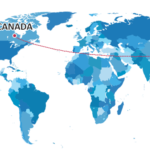
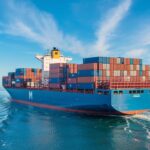


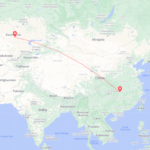

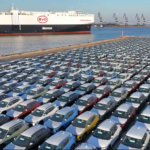


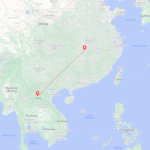
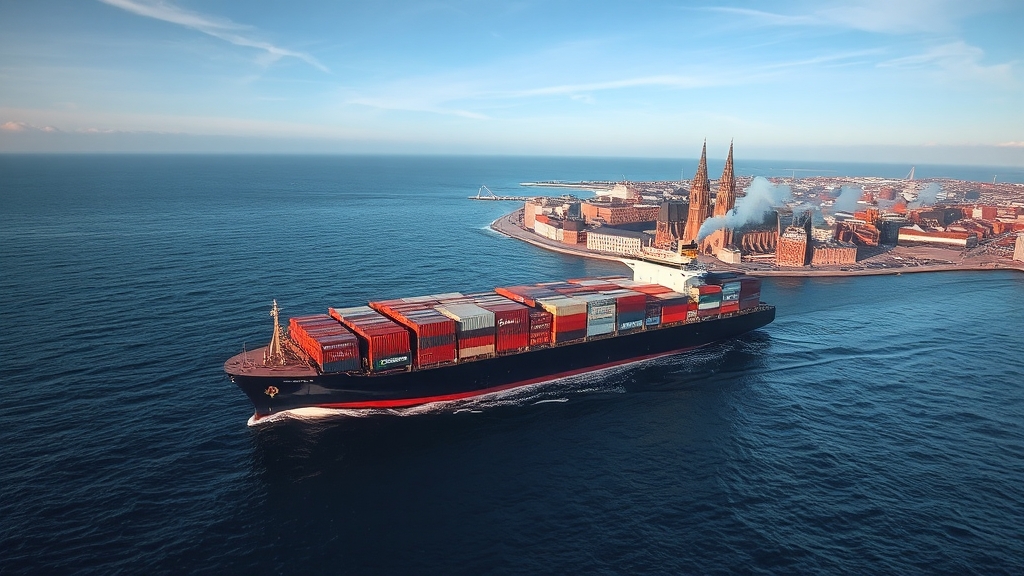
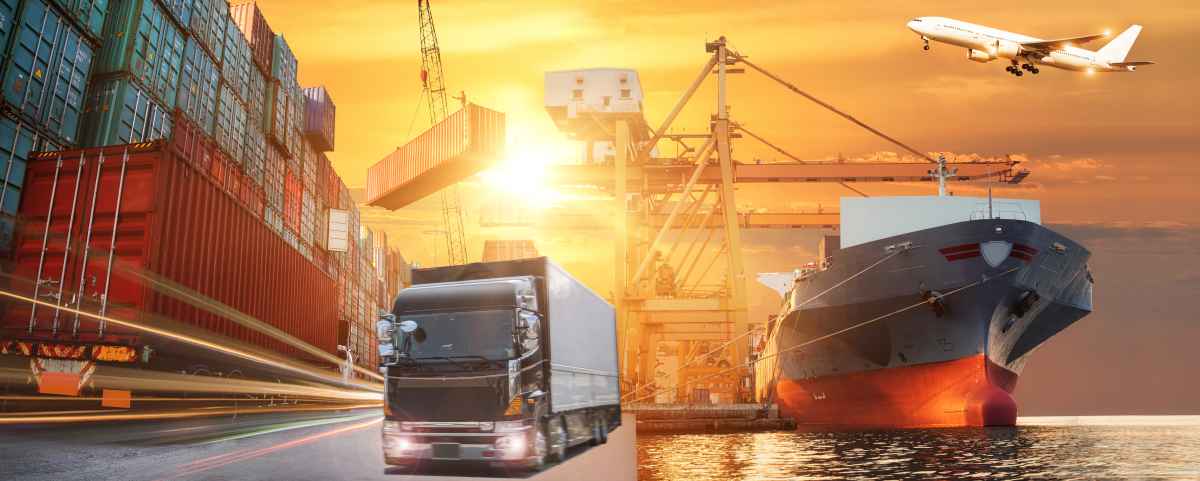
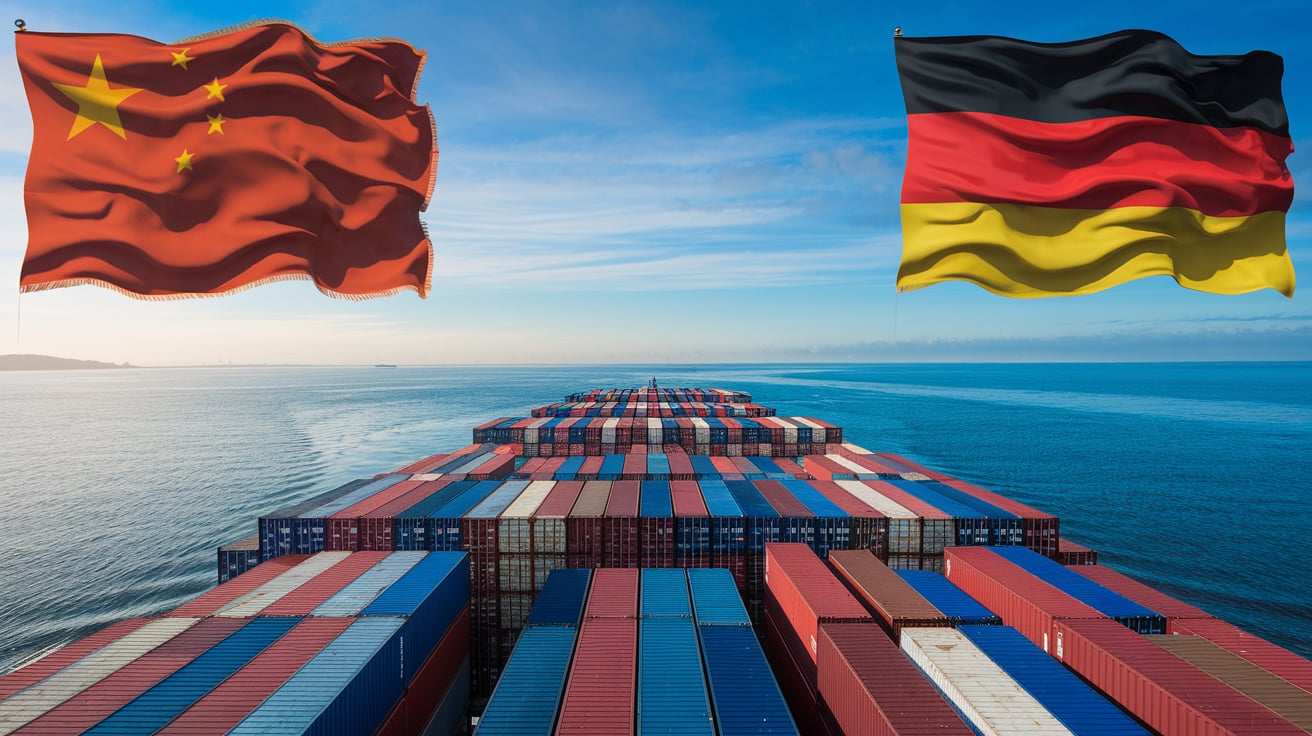
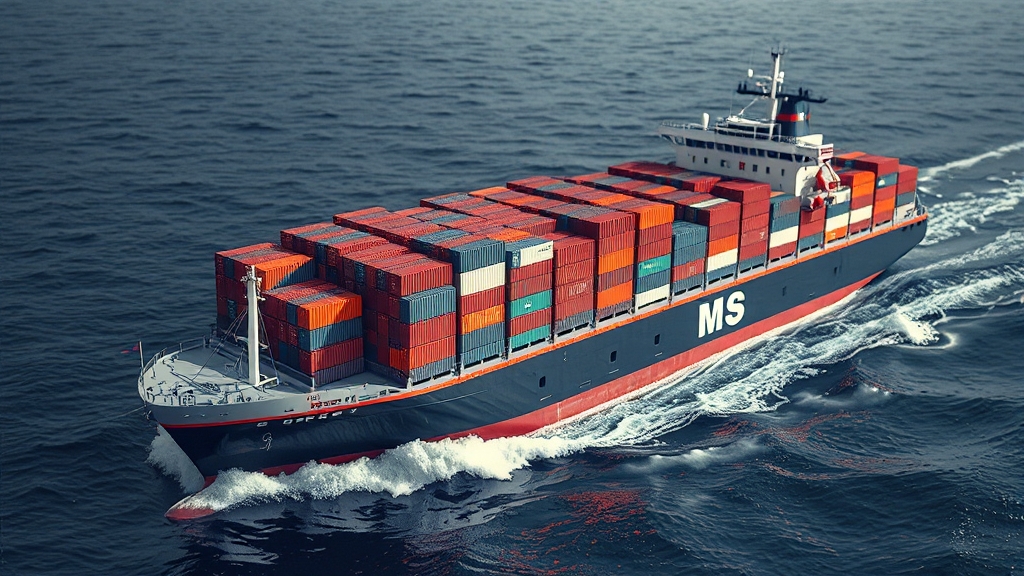
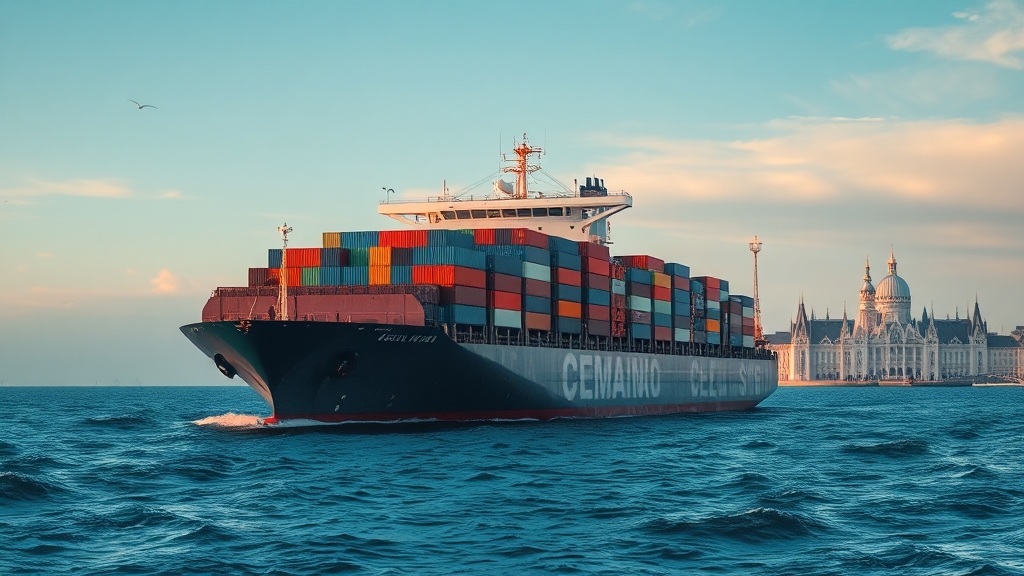





 Afrikaans
Afrikaans Shqip
Shqip አማርኛ
አማርኛ العربية
العربية Հայերեն
Հայերեն Azərbaycan dili
Azərbaycan dili Euskara
Euskara Беларуская мова
Беларуская мова বাংলা
বাংলা Bosanski
Bosanski Български
Български Català
Català Cebuano
Cebuano Chichewa
Chichewa 简体中文
简体中文 繁體中文
繁體中文 Corsu
Corsu Hrvatski
Hrvatski Čeština
Čeština Dansk
Dansk Nederlands
Nederlands English
English Esperanto
Esperanto Eesti
Eesti Filipino
Filipino Suomi
Suomi Français
Français Galego
Galego ქართული
ქართული Deutsch
Deutsch Ελληνικά
Ελληνικά Kreyol ayisyen
Kreyol ayisyen Harshen Hausa
Harshen Hausa Ōlelo Hawaiʻi
Ōlelo Hawaiʻi עִבְרִית
עִבְרִית हिन्दी
हिन्दी Hmong
Hmong Magyar
Magyar Íslenska
Íslenska Igbo
Igbo Bahasa Indonesia
Bahasa Indonesia Gaeilge
Gaeilge Italiano
Italiano 日本語
日本語 Basa Jawa
Basa Jawa ಕನ್ನಡ
ಕನ್ನಡ Қазақ тілі
Қазақ тілі ភាសាខ្មែរ
ភាសាខ្មែរ 한국어
한국어 كوردی
كوردی Кыргызча
Кыргызча ພາສາລາວ
ພາສາລາວ Latin
Latin Latviešu valoda
Latviešu valoda Lietuvių kalba
Lietuvių kalba Lëtzebuergesch
Lëtzebuergesch Македонски јазик
Македонски јазик Malagasy
Malagasy Bahasa Melayu
Bahasa Melayu മലയാളം
മലയാളം Maltese
Maltese Te Reo Māori
Te Reo Māori मराठी
मराठी Монгол
Монгол ဗမာစာ
ဗမာစာ नेपाली
नेपाली Norsk bokmål
Norsk bokmål پښتو
پښتو فارسی
فارسی Polski
Polski Português
Português ਪੰਜਾਬੀ
ਪੰਜਾਬੀ Română
Română Русский
Русский Samoan
Samoan Gàidhlig
Gàidhlig Српски језик
Српски језик Sesotho
Sesotho Shona
Shona سنڌي
سنڌي සිංහල
සිංහල Slovenčina
Slovenčina Slovenščina
Slovenščina Afsoomaali
Afsoomaali Español
Español Basa Sunda
Basa Sunda Kiswahili
Kiswahili Svenska
Svenska Тоҷикӣ
Тоҷикӣ தமிழ்
தமிழ் తెలుగు
తెలుగు ไทย
ไทย Türkçe
Türkçe Українська
Українська اردو
اردو O‘zbekcha
O‘zbekcha Tiếng Việt
Tiếng Việt Cymraeg
Cymraeg יידיש
יידיש Yorùbá
Yorùbá Zulu
Zulu